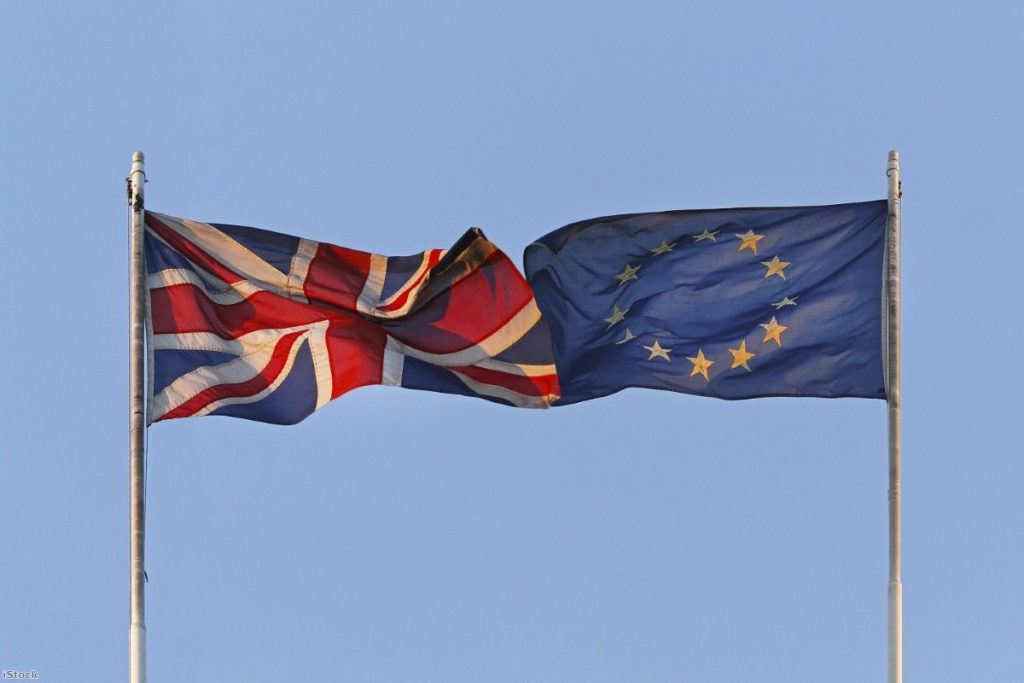Who is really winning the EU referendum race?
By Matthew Goodwin
The official EU referendum campaign is nearly upon us yet there remains considerable confusion about who is ahead.
Talk to Eurosceptics and they claim that momentum is on their side. In recent weeks they have been buoyed by opinion polls which suggest the race has narrowed. Long gone are the days when Remain held a commanding lead in the polls. In the authoritative 'Poll of Polls' the gap between the two sides is just six points, with Remain on 53% and Leave on 47%. In March three separate polls put Leave ahead, though often only by a couple of points – two by ICM and one by ORB.
Though Remain were ahead in the vast majority of polls, these examples have fuelled a quiet confidence among Eurosceptics, a sense that they are managing to keep pace despite a fairly constant onslaught of pro-EU interventions from business and political figures. In this respect they point to the trend in regular telephone tracker polls like those shown in the chart below, and which suggest a fairly consistent erosion in the lead for Remain. As UKIP leader Nigel Farage said at one recent event: "If they have fired all of their big guns now, what will they have to fire through May and June?"



There is, however, another view. Some analysts have provided interesting evidence to suggest that online polls could be significantly overstating support for Leave through the way they handle undecided voters and by failing to represent more socially liberal voters who are harder to reach. In this reading, the 'real' picture of the referendum race might actually be closer to the picture in the telephone polls in which Remain continue to hold a clear lead.
It's also possible that the race is closer to the results of larger surveys like the British Social Attitudes survey which suggest that only around one-in-four voters are unequivocally in favour of withdrawal from the EU. The implication of this view, which contrasts sharply to the mindset of the confident Outer, is that we could be heading for a comfortable Remain win. If this is the case, then opinion pollsters still have a lot of work to do.
But there is one important variable that matters for both sides, the effect of which is not clear and will not be known until the actual result. That variable is turnout. Eurosceptics are excited about evidence that suggests their supporters are more firmly committed to their beliefs and more committed to turning out on June 23rd. One example was a recent survey by Opinium, which suggested that among those who say they will 'definitely vote' Leave is ahead by a 76-59 margin.
Another is the latest telephone poll by Ipsos-MORI which though putting the Remain camp ahead by a 49-41 margin, also suggested that once turnout is factored in, this lead dropped from eight to just two points. Some argue that these differences in turnout are actually exaggerated, that once you take account of things like social class and income the differences between Remainers and Leavers is not that great. However, with cultural angst high on the agenda, dissatisfaction with the incumbent government on the rise and a Eurosceptic campaign that is more sophisticated than some realise, it does appear likely that whatever the result, the Leave vote will be fairly strong.
Indeed, we already have a real world experiment on which to draw. Remember the predictions before the general election that Eurosceptics would not remain loyal to the UK Independent Party all the way to polling day? Well, in the end they turned out to be a pretty loyal bunch.
It remains unclear how turnout will impact on the result but it is clear, As David Cameron has said recently, that it could make all the difference.
One deciding factor could be the role of the Labour leader. With Jeremy Corbyn due to give a major speech on the EU his advisors might want to think about how to mobilise younger, Labour-leaning progressives who may not think that Europe is an important issue, might not want to join the same side as David Cameron and – as we learned at the general election last year – might for all of these reasons conclude that it is easier to stay at home. And, don't forget, a significant number of younger Britons have also fallen off the electoral register in recent months (hence Nicky Morgan's recent intervention to try and ensure that those young voters who are still on the register turn out.)
All of this means that Cameron finds himself in a fairly tricky position, having to rely on mobilising Remain votes from large numbers of people who voted against him last May while hoping that the leader of the Labour Party will actually stand up and make a direct and unequivocal plea for voters to keep Britain in the EU. Will it prove to be too big an ask?
Constituency map showing how MPs intend to vote in the EU referendum
Professor Matthew Goodwin is a senior fellow in the 'UK in a Changing Europe' programme. Follow him @GoodwinMJ
The opinions in Politics.co.uk's Comment and Analysis section are those of the author and are no reflection of the views of the website and its owners.









